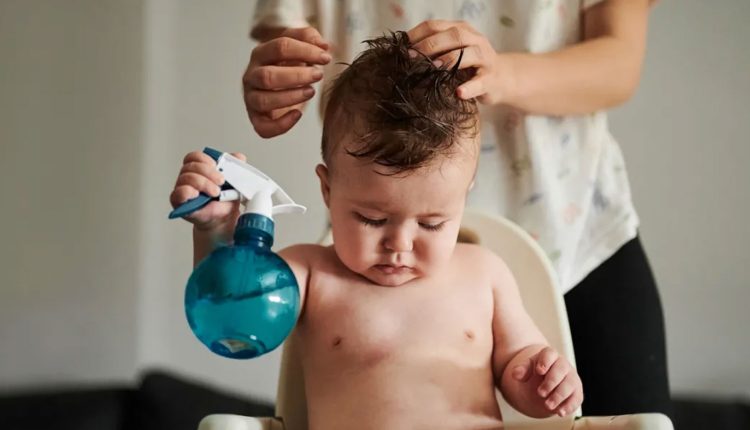The Dhaka Times Desk If you want to see a full head of hair on your baby's head, then the scalp needs to be taken care of. Only then will the hair become stronger and the density will also increase.

We all know that children's skin is very sensitive. Therefore, only cosmetics that are safe for children should be used. As much as parents worry about their child's skin from a young age, if there is no problem, the headache of separating hair is not visible. But when the hair on the head starts to become thinner than normal, mothers start applying different oils. Many people think that frequent shaving will increase the density of hair. But doctors said, if you want to see a single hair on the head of children, then you have to take care of the scalp. Only then will the hair become stronger, the density will also increase. For this there is no need to always buy expensive oil from reputed companies in the market. A few simple oils can be used to care for baby hair.
coconut oil
One thing to note is that there is no substitute for pure coconut oil. This oil is safe for adults as well as newborns. It is not only adults who can get the infection on the scalp. Dead cells often come from children's heads. The antibacterial properties of coconut oil help to eliminate this problem.
Peanut oil
Rich in vitamin E and essential minerals, walnut oil is also good for the scalp. This oil does not cure any infection or inflammation on the scalp. If you apply this oil on the baby's head from a young age, the quality of the hair is good.
Olive oil
This olive oil can maintain the moisture of the scalp. In particular, this oil is beneficial for children whose scalp is extra dry or whose hair is curly. Source: Anandabazar Patrika Online.
>>>>>>>>>>>>>>
How to prevent dengue
Dengue is a mosquito-borne viral fever. This fever is different from other viral or bacterial fevers. However, this fever is not contagious in any way. This viral fever can occur alone or in combination with other viruses (chikungunya, yellow fever, Burma forest, flu, respiratory syncytial) and bacteria (pneumococcus).
Dengue fever is divided into two categories depending on the severity of symptoms and fever.
1. Common dengue fever
2. Dengue fever with bleeding.
In the case of common dengue fever, the following symptoms are mainly seen-
1. Sudden high fever lasting 2 to 7 days.
2. Severe headache.
3. Pain behind the eyes.
4. Along with the fever, red rash appears all over the body.
5. Severe pain in whole body as well as back pain.
6. Nausea or vomiting.
7. A rash or red bumps on the skin.
In case of dengue fever with bleeding:
1. Bleeding from nose, mouth or vomiting with high fever within 2 to 48 hours.
2. Fluid accumulation in chest or abdomen along with fever.
If any of these symptoms appear, seek medical attention immediately.
On the other hand
Wait at home for the first 3 days of fever. On the other hand, sponge the whole body with water every now and then. This will reduce the level of fever. Drink enough water and rest. After that, if the fever does not decrease or if it continues to increase after some time, consult a doctor immediately.
Things to do to prevent Dengue:
1. Try to keep the surroundings of the house as clean as possible.
2. If there are flower tubs or broken plastic bottles, can shells, tires or polythene inside the house, clean them quickly and drain the accumulated water from the flower tubs.
3. Spray or fog at least 3 times a week to kill mosquitoes.
4. You can keep mosquito repellent cream with you while going out.
5. After evening, younger and older members of the household should use mosquito nets.
6. Clean up any accumulated rain water, as this is the time when Aedes mosquitoes lay their eggs.
7. On the other hand, you can use mats along with mosquito nets to avoid mosquito infestation.
8. Since Aedes mosquitoes bite during the day, it is important to avoid sleeping with mosquito nets while sleeping during the day. Source: https://dmpnews.org


